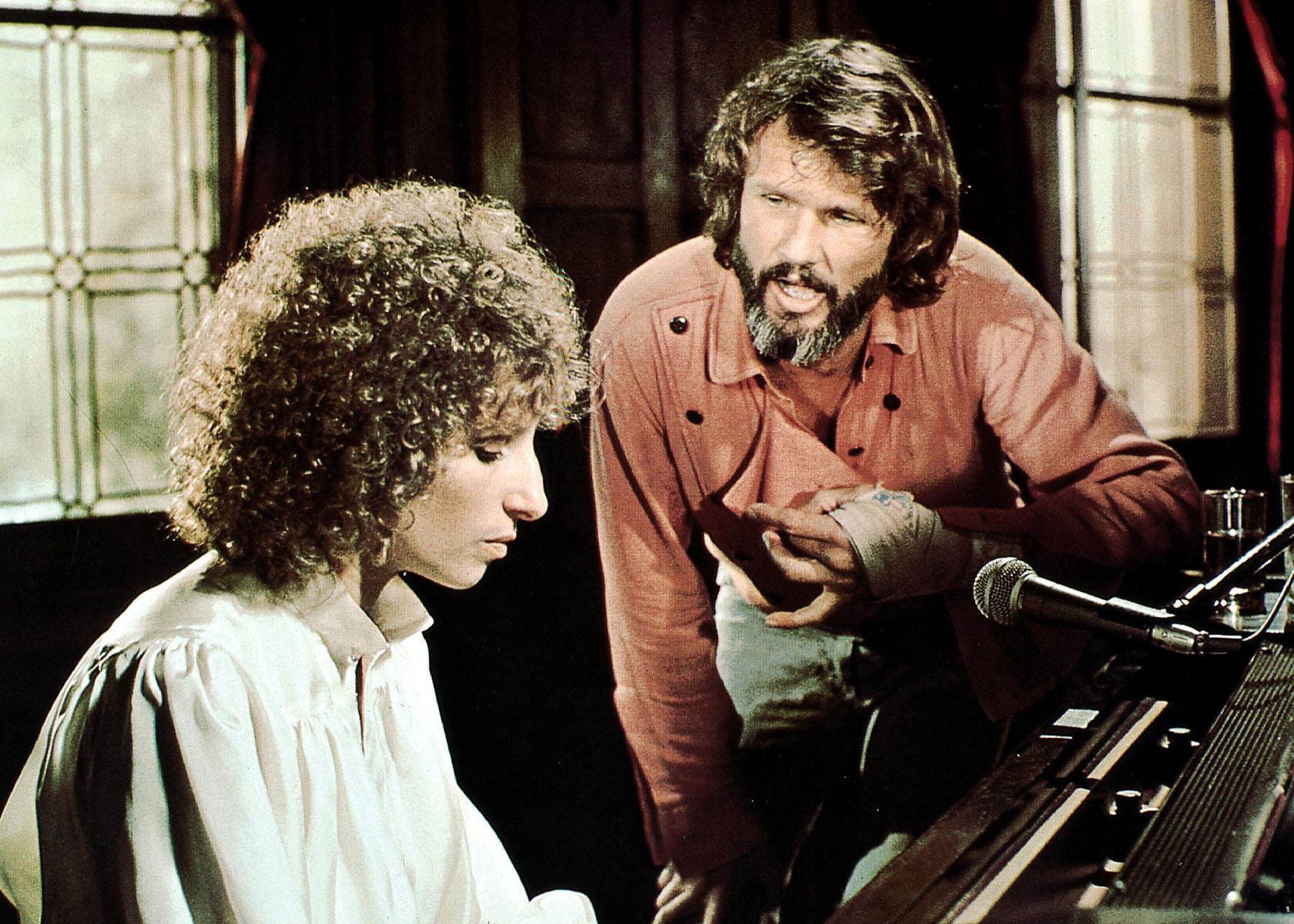
Ruggedly good looking, a gifted singer and talented actor, a high-performing athlete and a Rhodes Scholar, Kristoffer Kristofferson was ridiculously blessed.
Born in Brownsville, Texas, Kristofferson moved many times during his childhood due to his father’s military career.
The family eventually settled in California, where his talents shone early: he wrote prize-winning essays and his sporting ability earned him coverage in Sports Illustrated.
A Golden Gloves boxer, rugby star and football player in college, Kristofferson graduated with a BA in literature before receiving a master’s degree in English from Merton College at the University of Oxford.
He then flew helicopters as a captain in the United States Army but turned down an appointment to teach at the US Military Academy at West Point, New York, to pursue songwriting in Nashville.
Hoping to break into the industry, he worked as a part-time janitor at Columbia Records’ Music Row studio in 1966, when Dylan recorded tracks for Blonde on Blonde.
At times, the legend of Kristofferson was larger than real life — country star and longtime friend Johnny Cash liked to tell a mostly exaggerated story of how Kristofferson landed a helicopter on Cash’s lawn to give him a tape of Sunday Mornin’ Comin’ Down, with a beer in one hand.
Over the years in interviews, Kristofferson said with all respect to Cash, while he did land a helicopter at Cash’s house, the Man in Black wasn’t even home at the time, the demo tape was a song that no-one ever actually cut and he certainly couldn’t fly a helicopter holding a beer.
However, Kristofferson readily acknowledged that he said he might not have had a career without Cash.
"Shaking his hand when I was still in the Army backstage at the Grand Ole Opry was the moment I’d decided I’d come back," Kristofferson said in 2006.
"It was electric. He kind of took me under his wing before he cut any of my songs. He cut my first record that was record of the year. He put me on stage the first time."
That record, Sunday Mornin’ Comin’ Down, a song about memory, loss and a brutal hangover, was not a hit initially but it fast became a favourite with critics and fans: earlier this year Rolling Stone ranked it 96 in a list of the 200 greatest country songs.
Written by Kristofferson at around the same time, Me And Bobby McGee was initially released by another country heavy hitter, Roger Miller, but a version recorded by a former girlfriend Janis Joplin and released posthumously, hit number 1 in the pop charts.
His burgeoning music career sidetracked Kristofferson into film. While performing a run of shows in Los Angeles opening for Linda Rondstadt, casting agents and directors spied other talents on stage.

Kristofferson’s first role was in Dennis Hopper’s The Last Movie, in 1971, and lead roles in Cisco Pike and Pat Garrett and Billy the Kid soon followed: the exposure and income Kristofferson received through film and television appearances ended up subsidising his music touring costs.
Arguably Kristofferson’s finest on-screen moment came in 1976 when he played a self-destructive rock star opposite Barbra Streisand’s aspiring singer in A Star is Born.
It was a character and story he knew all too well and Kristofferson played it to the hilt.
Kristofferson lived hard during his heyday. There was a long line of girlfriends and performances he could not remember because he was drunk.
He gave up drinking — but not marijuana — when a doctor told him he was killing himself.
"It was fun," Kristofferson said in a 60 Minutes interview.
"It was the way that I thought an artist was supposed to live. I always agreed with Blake when he said that the road of excess leads to the palace of wisdom ... I think God protects fools and songwriters."
Kristofferson’s sharp-tongued political lyrics sometimes hurt his popularity, especially in the late 1980s. His 1989 album Third World Warrior was focused on Central America and what United States policy had wrought there, but critics and fans weren’t excited about the overtly political songs.
He said during a 1995 interview that he remembered a woman complaining about one of the songs that began with killing babies in the name of freedom.
"And I said, ‘well, what made you mad — the fact that I was saying it or the fact that we’re doing it? To me, they were getting mad at me ’cause I was telling them what was going on."
In 1982, Kristofferson joined Willie Nelson, Dolly Parton and Brenda Lee on The Winning Hand, a double album of remastered 1960s recordings.
He and Nelson struck up a rich creative partnership which led to a 1984 duets album, and then in 1985 the formation of country supergroup The Highwaymen, alongside Cash and Waylon Jennings.
"I think I was different from the other guys in that I came in it as a fan of all of them," Kristofferson said in 2005.
"I had a respect for them when I was still in the army. When I went to Nashville they were like major heroes of mine because they were people who took the music seriously. To be not only recorded by them but to be friends with them and to work side by side was just a little unreal. It was like seeing your face on Mount Rushmore."
The group put out just three albums between 1985 and 1995. Jennings died in 2002 and Cash died a year later.
Kristofferson said in 2005 that there was some talk about reforming the group with other artists, such as George Jones or Hank Williams Jr, but that it wouldn’t have been the same.
"When I look back now — I know I hear Willie say it was the best time of his life.
"For me, I wish I was more aware how short of a time it would be. It was several years, but it was still like the blink of an eye. I wish I would have cherished each moment."
Kristofferson married Lisa Meyers in 1983, and he had eight children from three marriages.
He began to suffer memory problems in his 70s and was eventually forced to retire from performing.
Kristofferson lived his final years in Hawaii, where he died on September 28 aged 88. — Agencies.












